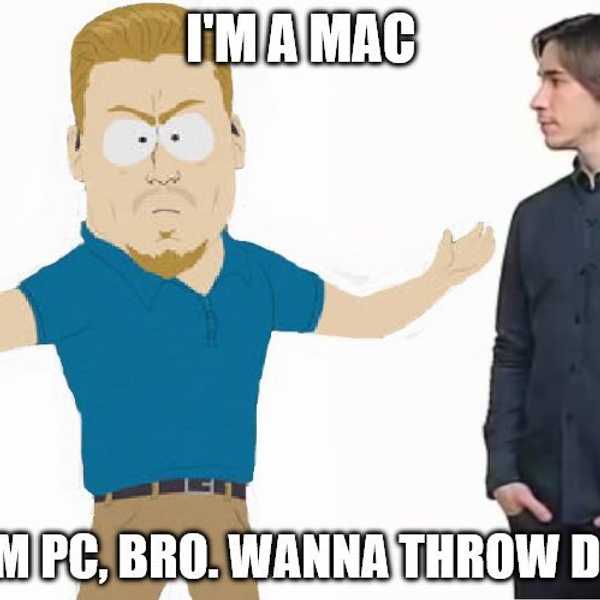Over the past several years, as social movements advocating for equality for racial, ethnic and sexual minorities have gained momentum, there has been an increasing trend in American society to use politically correct language. The term "politically correct" is defined by the Merriam-Webster dictionary as "agreeing with the idea that people should be careful to not use language or behave in a way that could offend a particular group of people." This often takes the form of individuals correcting those who use "offensive" terms and nit-picking semantics, resulting in political correctness frequently being viewed in a negative light. There are multiple reasons people cite for opposing political correctness, but possibly the most common is that using politically correct language adversely impacts freedom of speech. This is a fairly logical argument; after all, one of the fundamental human rights we hold as American citizens is the right to freely express our opinions, whether by word-of-mouth or through the press.
Nonetheless, freedom of speech goes both ways: if we have the right to speak our minds in ways that may be considered harsh or insensitive, we also have the right to correct and try to educate those who use speech that could be construed as offensive. Understandably, constant correcting of one's choice of language, which is the form political correctness often takes, can be irritating, especially when it seems to be simply a matter of semantics. But if one is given guidance about how to be more sensitive, it should not be blown off. In such a situation, it is important to put oneself in the shoes of the person who might be offended and try to view the language in question from that perspective.
For example, think about the distinction between the words "tranny," "trans-gendered," or "transgender" to describe someone who does not identity with the gender he/she was assigned at birth. Clearly, "tranny" is an offensive term; anyone who uses it likely does not care if anyone is offended by the use of this word, or may even be trying to be intentionally derogatory. In such an instance, this language is used to intentionally deride the transgender population. Moreover, someone who is simply uneducated about the transgender population and unaware of what may be considered offensive may use the term "trans-gendered" to describe a gender non-conforming individual. On the surface, this term appears to be harmless, however, many transgender individuals dislike being referred to in this way. As described by Christina DiEdoardo, a transgender woman, use of this word makes it seem like "something has been done to us" and implies a distinct, completed choice to be transgender, rather than the reality of the long process of coming to terms with one's identity. Of course, this distinction between "trans-gendered" and "transgender" is incredibly subtle and impossible to pick up on unless one is educated about the difference.
This example illustrates not only the nuances of using politically correct language, but the reasons why people are often insensitive. As is the case with the use of the word "tranny," some people use politically incorrect language to intentionally ridicule a certain population. Unfortunately, not much can be done to correct offensive language with this type of malicious motivation. On the other hand, some people use politically incorrect language out of sheer ignorance. This is not a bad thing—after all, one cannot be blamed for simply not knowing the correct language to use in a given situation. This is the case with the word "trans-gendered": It seems harmless on the surface, yet carries greater weight for individuals in this population. In such an occasion where inexperience is the predecessor to using insensitive language, it is necessary to make people aware of the appropriate vocabulary. Otherwise, ignorance will continue to breed intolerance.
You may think, "people just need to learn to be less sensitive". But the fact is, if you belonged to a group of people who have constantly been discriminated against, you would be sensitive too. It is frequently the case that people belonging to any majority, whether it be racial, ethnic, gender, or sexuality based, are not aware of the systemic discrimination minorities face. In the end, only people belonging to these minorities can truly understand the experiences they go through and the effects certain language has on their sense of self. We can attempt to empathize, but we will never know the trials these populations face. It is for that reason the movement to be politically correct is a positive one. Even if it feels like being hypercritical, we must remember we can never truly understand the effects insensitive words have on others unless we belong to the minority group in question.
Ultimately, people should be politically correct not to be in line with the liberal ideology, but simply out of sheer human decency. It should be a common practice to treat others with respect, even if it requires slightly more effort than allowing one's speech to remain unfiltered. This is not to say we should hide our opinions; expressing opinions is still a vital part of exercising freedom of speech. But when expressing one's opinions, it is important to be open to the idea that new things can always be learned. Instead of getting defensive when corrected for unknowingly using insensitive language, look at is as room to grow. After all, nobody is perfect. We all are naive on certain subjects, but if we take the advice of others and create a more politically correct atmosphere, we can not only become a more informed society but also take a step toward equality for all.





















